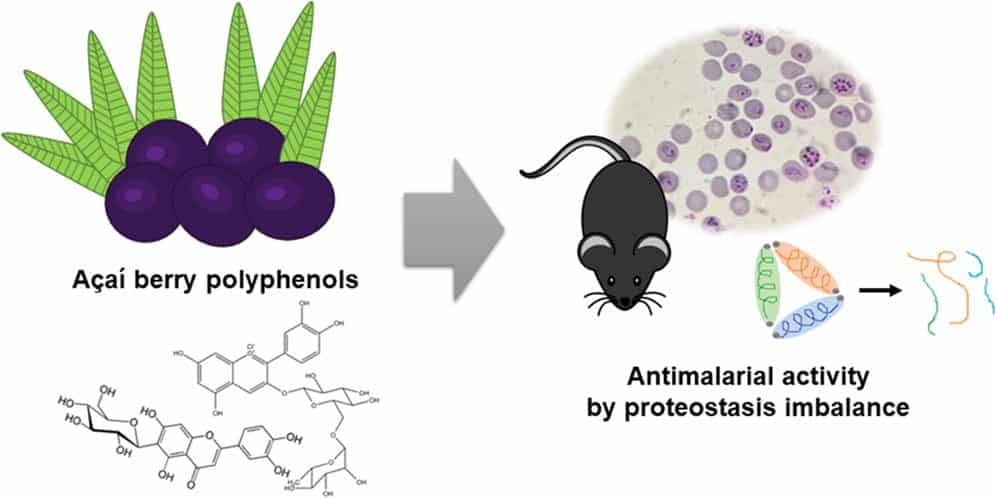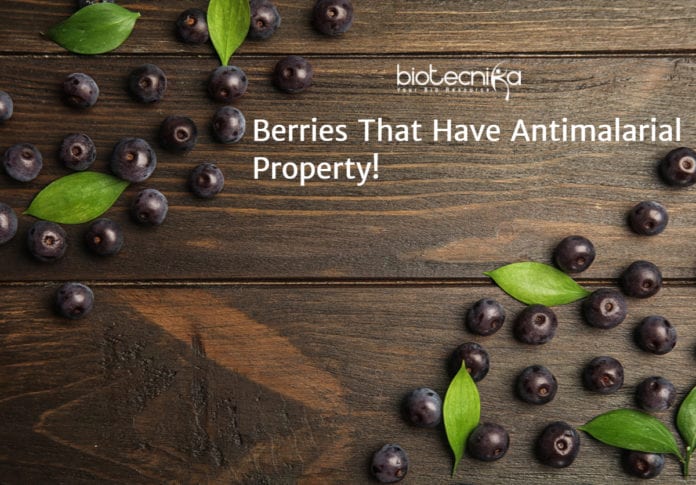New Antimalarial Berry
According to the World Health Organization, 200 million people were affected by malaria in 2017, causing almost 50,000 deaths.
Moreover, with antimalarial drug resistance on the peak and climate change allowing malaria to
spread further than once thought possible, malaria infections are at a critical tipping point that could have mortality and morbidity rates soaring very soon if new drug interventions are not identified.Researchers ascross the world are actively searching for new treatments, and now, a group of scientists from the University of Campinas (UNICAMP) in Brazil has found that aҫaí berry extract can reduce parasites in the blood and prolong the survival of infected mice. They recently published this study in ACS Omega. The Study showed that berry extracts could reduce parasites in the blood and prolong the survival of infected mice.
New Antimalarial Berry- The SuperFood
Aҫaí- Euterpe oleracea Martius is native to Brazil, where some traditional healers use the berries to treat malaria symptoms. In recent years, the high antioxidant content of the grape-like fruit has boosted its popularity outside of Brazil and has caused some to consider it a “superfood.”
This antioxidant activity arises mainly from polyphenols. These compounds have been linked to health benefits such as weight loss, cardiovascular disease prevention, and decreased cancer risk.

New Antimalarial Berry- The Study Conducted
The UNICAMP scientists wanted to determine if aҫaí extracts could treat malaria in mice, and if so, whether polyphenols in the berries were responsible for the therapeutic effect.
The team extracted polyphenols from aҫaí berries and then treated malaria parasite cultures growing in a Petri dish with the extracts. They found that a class of polyphenols called nonanthocyanin phenolics inhibited the growth of both chloroquine-resistant and -sensitive parasites. Then, the researchers orally administered aҫaí polyphenols to malaria-infected mice.
Researchers said that the treatment with the New Antimalarial Berry reduced the parasitic load in the mice’s blood by 89.4% compared with untreated mice. All of the mice given polyphenols survived for more than 15 days, whereas none of the untreated mice lived. The aҫaí extracts appeared to interfere with the parasites’ protein homeostasis or the balance between protein production and degradation.






























